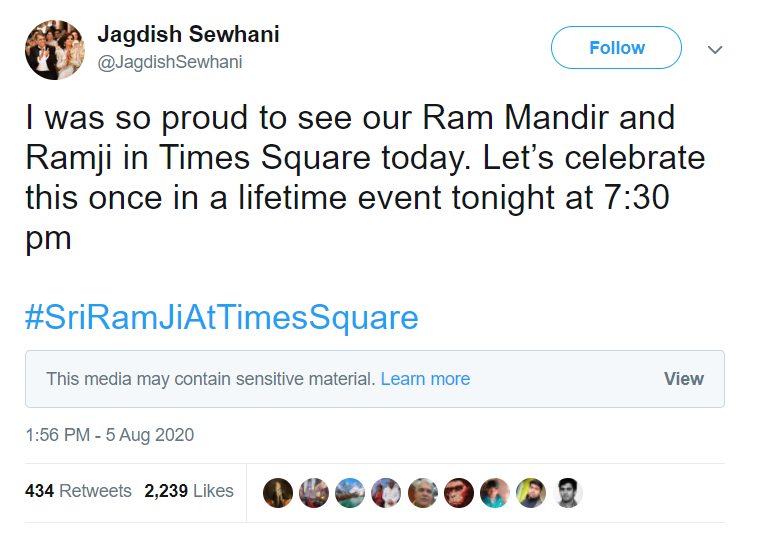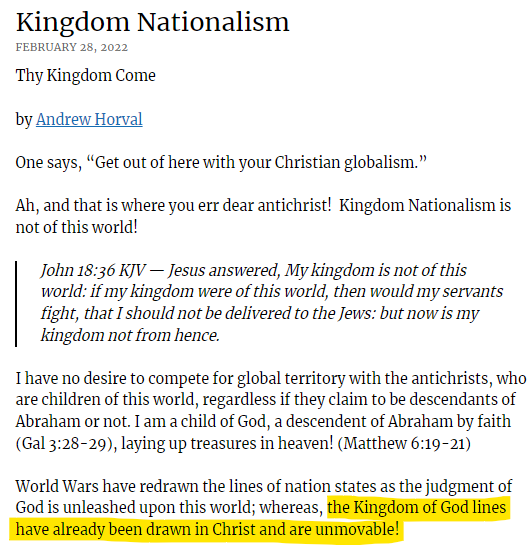Drishtikone Newsletter #336: Time for Network States?
With technological stars aligned, and decentralization the only option for future media, are the Network States the only reality? A detailed take.
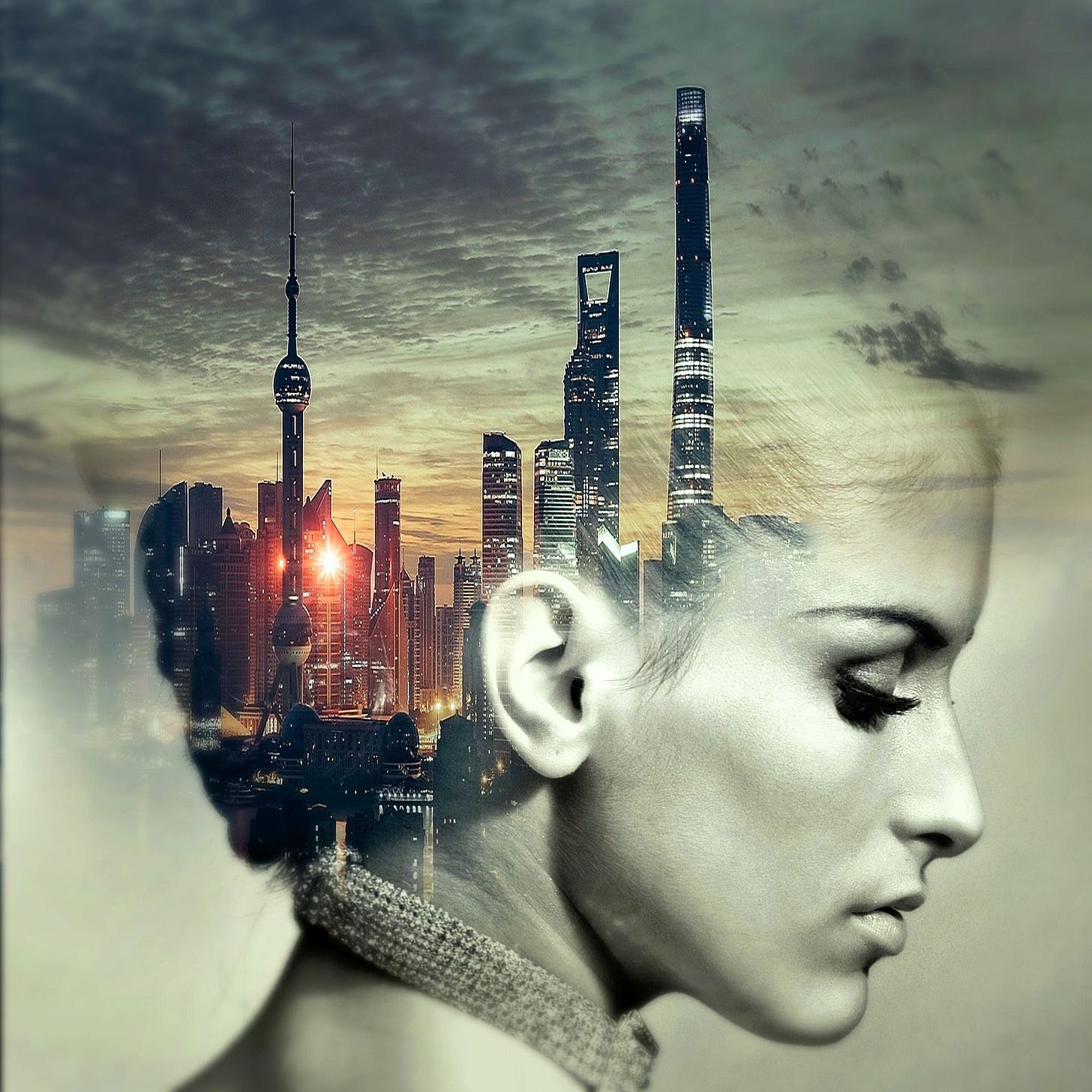
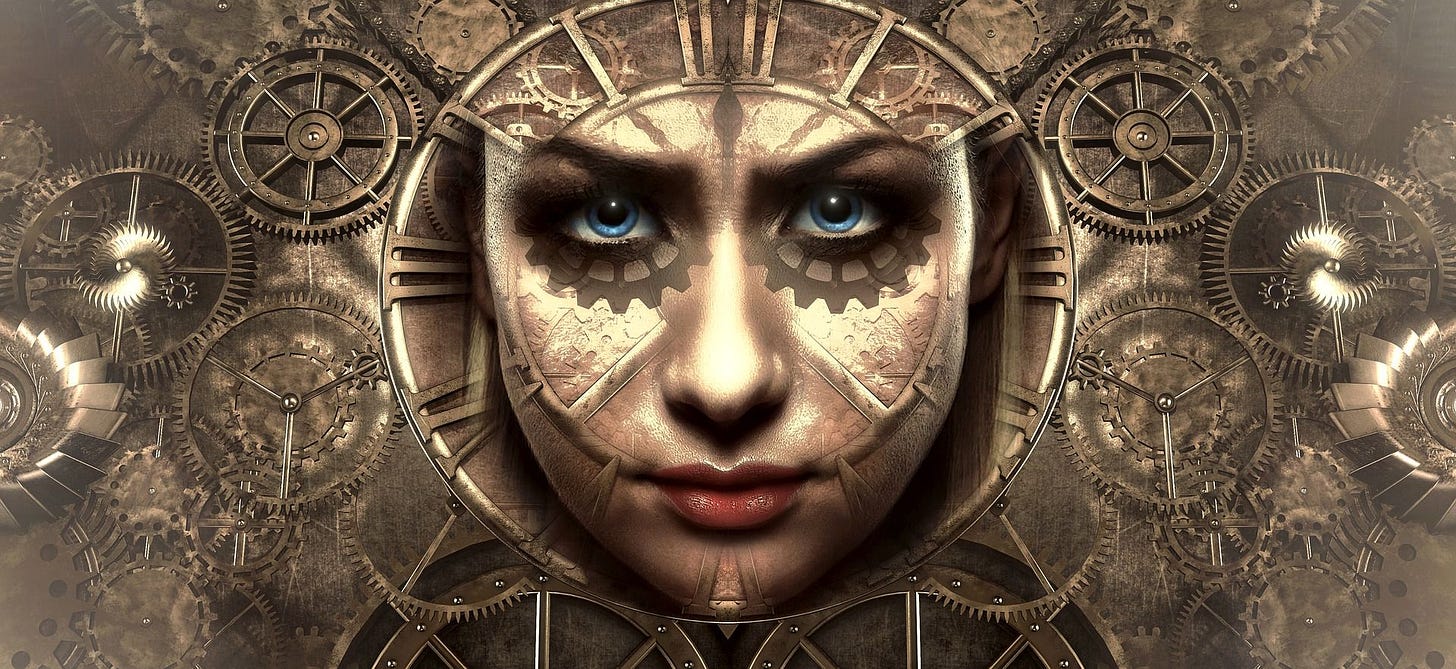
“But life is very short and anxious for those who forget the past, neglect the present, and fear the future.” ― Seneca, On the Shortness of Life
Centralization of power, however well-intentioned, is a recipe for disaster.
In the entire history of mankind, every revolution has always brought in worse tyrants than the ones these revolutions planned to overthrow. Khomeini for the Shah. Leninists for the Czars. Chinese Communists for the earlier rulers.
True transformation occurs when the roots of that change are linked to every participant directly. No one calls the shots, and everyone has an equal chance. One does not become important due to any links or relationships or family name, but when anonymity is the norm, and your encrypted secure self is your greatest right and property as well.
If the work is great, there is great power in anonymity. Look at all the Dharmic scriptures. No one knows who wrote them. Where they were written. Who first practiced them. Yet, they remain the most powerful set of works in human history.
The new world order built on the back of these principles of shared yet decentralized and distributed structures for the good of the society are needed.
Just as laws and courts enforce property rights, the new world order enables encryption in achieving those rights.
This is the new world, where technology pairs you with your ideological twin. And citizenship peer.
Musk bids for Twitter
On April 13, 2022, Elon Musk, one of the richest people on the planet put in an offer to buy Twitter for $43 billion @ $54.20 a share. Here is what he said.
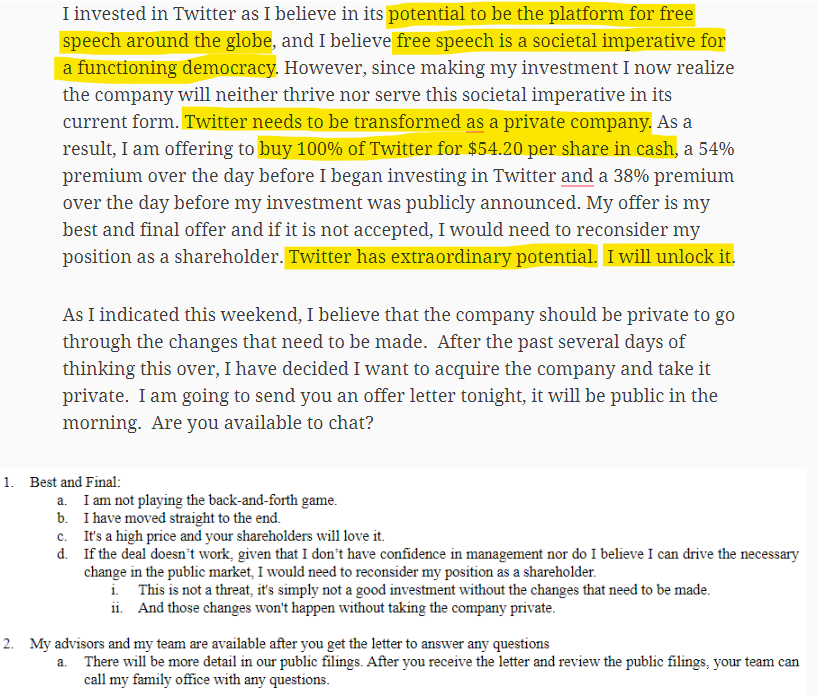
A few things are very clear that Musk thinks:
Twitter has great "Extraordinary potential for free speech"
Twitter needs to be transformed
The agent for that transformation will be, obviously, Elon Musk!
Centralization and Musk-speak
From accounts providing information from journalists supposedly working on the ground in Ukraine which turned out to be fake (Source: France24) to Twitter verifying fake accounts (Source: TheVerge), Twitter is still a platform that promotes narratives, stories, and speech that is influential.
However, its influencer population is not democratized. Only 10% of its users in the US send 80% of all tweets! The rest 90% of the users share rest 20% of the tweets.
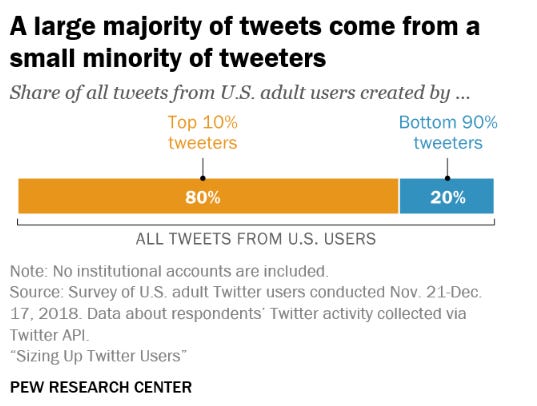
This is so when Twitter's users are not as many as those on Facebook. Over 9 times less.
Twitter has a user problem, data suggest, but that has little do with Elon Musk. Twitter had 217 million monetizable daily active users (mDAUs) in the fourth quarter of 2021 (with 38 million in the U.S.), up from 211 million in the third quarter. However, analysts tracked by FactSet were expecting the platform to add 8 million mDAUs in the quarter. Compare that to Meta-owned FB Facebook’s 1.9 billion-plus daily active users. (Source: Marketwatch)
The number of users apart, the revenues from its advertisements are not scaling up. The revenues on YouTube are 5 times that Twitter can boast of.
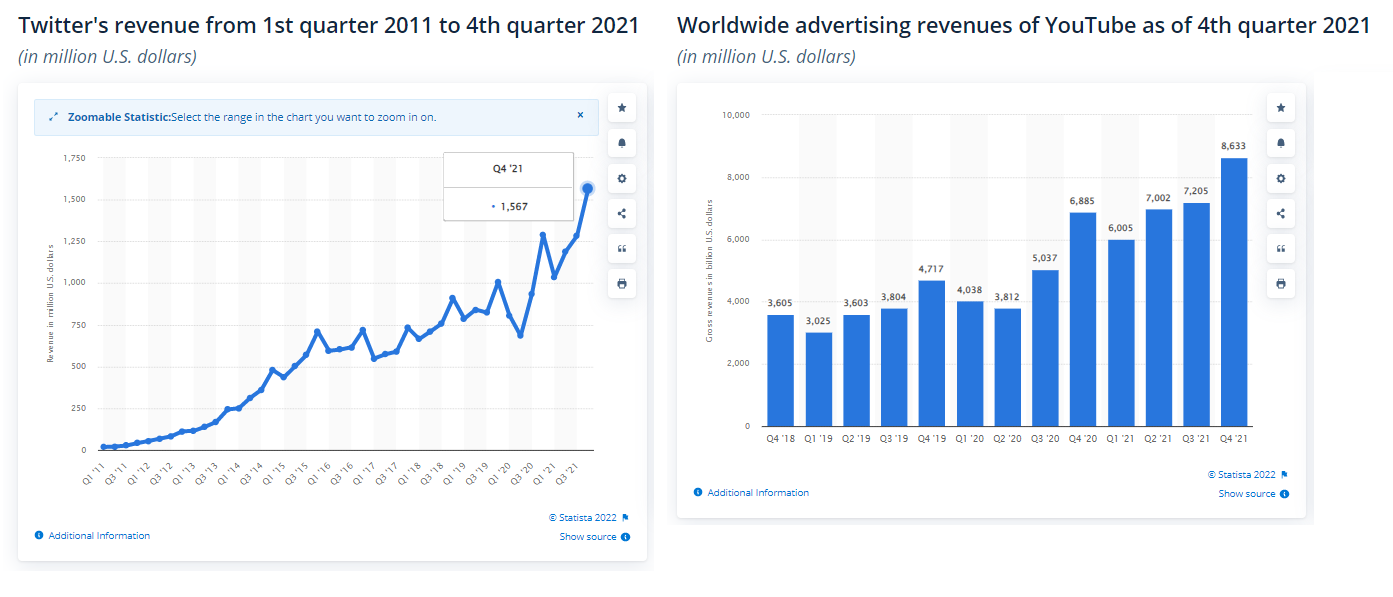
In a TED interview (see below), Elon Musk shared some important insights on Twitter and his goals regarding the platform. Some of the important changes that Elon Musk wants to make to Twitter include:
Open-source algorithm and open up the actions. Code should be on Git-hub and open to the public.
There should be No behind the scenes adjustments or actions that no one knows about
If in doubt, let the speech exist. If there is a grey area - let the tweet and speech exist. Be very reluctant to delete speech or tweet and also be very careful with bans.
Bound by the laws of the country it operates in.
Interestingly, Musk discusses how Twitter is linked to the very Civilizational evolution itself. He says that Civilizational risk decreases as people's trust in Twitter improve. In that sense, he says that the Blackbox algorithm and promoting and demoting tweets or people - are all bad for civilization.
Musk has called himself a free speech absolutist. This is his contribution to the future of Free Speech on this planet.
Starlink has been told by some governments (not Ukraine) to block Russian news sources. We will not do so unless at gunpoint.
Sorry to be a free speech absolutist.— Elon Musk (@elonmusk) March 5, 2022
So his action of putting in the bid for Twitter, he says, has nothing to with economics. It has to do with free speech. Which is at the heart of the civilizational ethos that he prizes.
The obvious question then becomes: How can the free speech platform be owned by the richest person on the planet?
Transforming the Prejudicial Beehive
Musk thinks that if two things - Algorithms and manual adjustments - are open source and publicly available information, trust will come.
“Having a public platform that is maximally trusted and broadly inclusive is extremely important to the future of civilization.” (Source: AP)
Elon Musk was against the de-platforming of Trump. And, that probably had a deep impact.
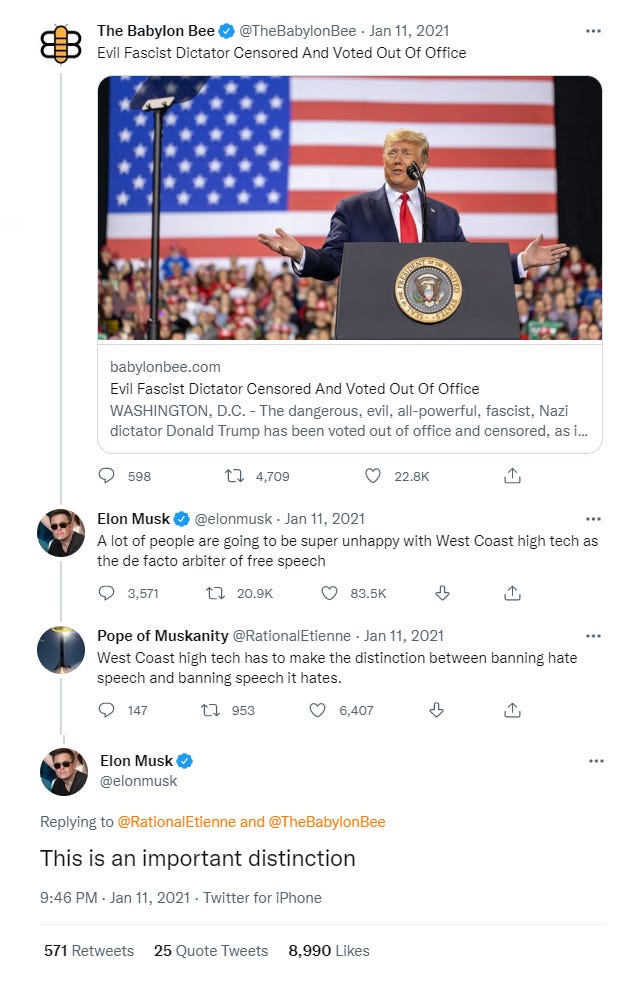
That the platform impacts the society - actually many societies (in the US and throughout the world) - is no secret. Here are some examples of what it has done:
It permanently suspended a former US President's account "due to risk of incitement of violence."
In January 2022, Twitter permanently banned a news aggregation service called 'Politics for All' for "platform manipulation and spam." (Source: The Guardian)
In India, Twitter has been openly accused of being Anti-Hindu. And not without merit.
Just sharing a couple of examples.
In 2020, for example, it censored a video shared by the Ram Janma Bhoomi Celebrations Committee of the USA which showed a display in New York's Time Square. The 9-second video was marked "The following media includes potentially sensitive content". Just a display of a Times Square banner was enough.
2. In December 2021, Twitter suspended the Twitter account of the handle @storiesofBHs - Why? Because it was telling the stories of one of the biggest genocide in the modern world - the Hindu Genocide of Bangladesh in 1971. (Please read - The Monumental Genocide of Bangladeshi Hindus by Muslims)
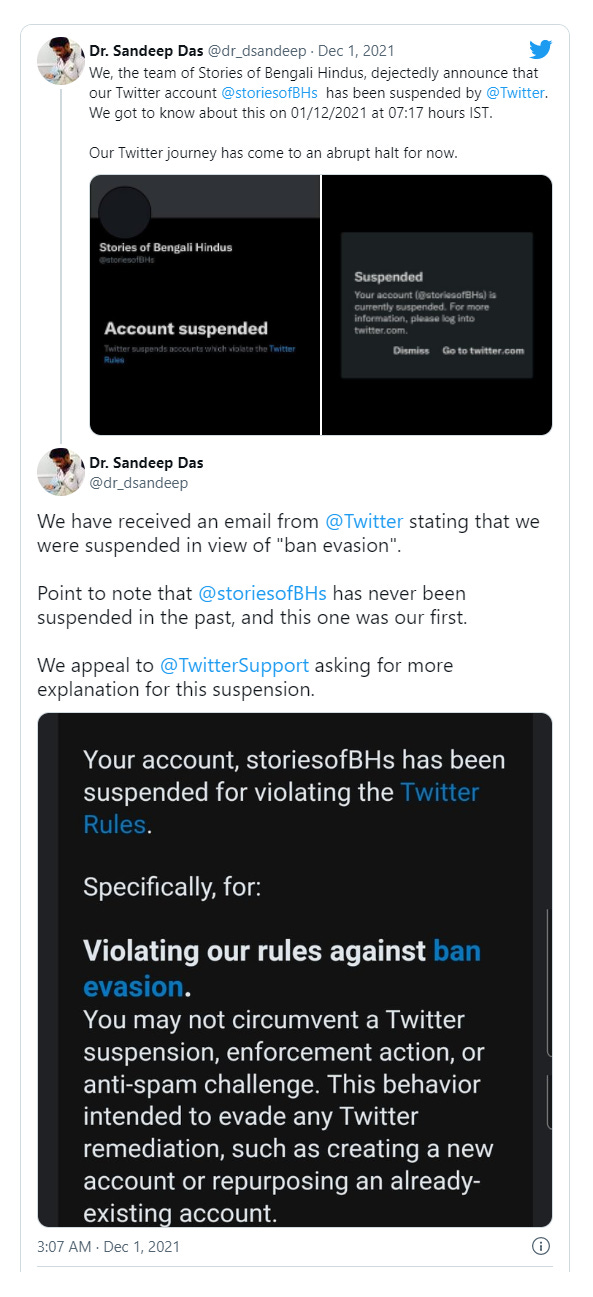
In all the actions, it seemed like Twitter had a strong liberal woke bias which translated into an overwhelming anti-Republican and anti-Hindu stance.
In an interesting report, Vice found out that most of the Republican voices were being actively shadow-banned on Twitter. However, the Democratic party voices were not being treated similarly. They instead had a free run. Unhindered.
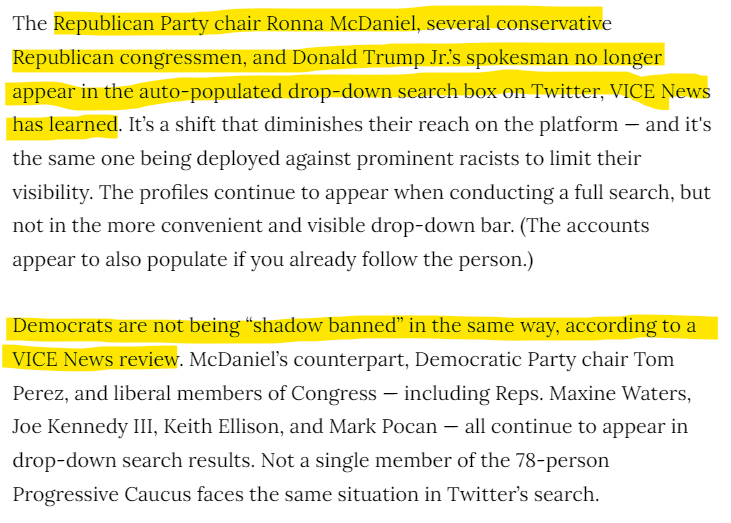
What is extremely interesting is the Twitter establishment was putting its money where its mouth was. That is - funding only extreme Democratic causes.
Twitter's shadow-banning of Republicans, as opposed to Democrats, is consistent with how their executives act as proxies for liberal and extreme liberal Democrat wokes.
Federal records reveal 80 percent of Twitter’s corporate PAC contributions in the 2018 election cycle have gone to Democratic candidates, none of whom are moderates. Liberal Democrats also got top dollar in the 2016 race. The lobbying records I reviewed, moreover, show Twitter has sought to influence Congress and federal agencies on behalf of Democratic causes and against President Trump’s policies. (Source: NYPost)
The Twitter executives have no need for the fig leaf to feign any balance of political leanings. They are exclusively in the Democratic party's court and have a strong alignment with George Soros controlled Democratic Party Super PAC.
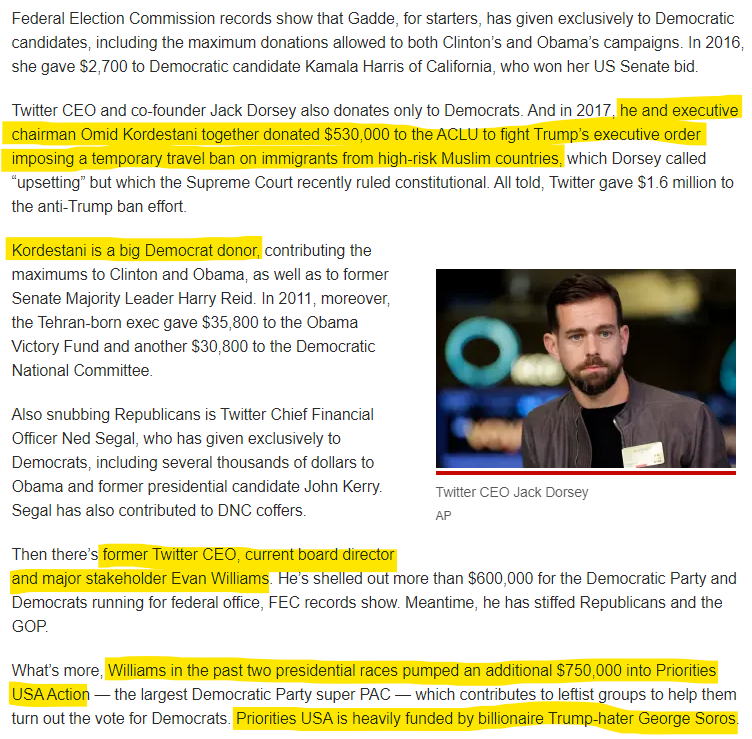
The reality of what Twitter was doing as documented in their discriminatory shadow-banning practices and their massive political contributions to one side of the aisle, eventually seeped into the side being victimized such that it had little identification with it at all. After all, if your voice has no place on a platform, why would you consider it valuable at all?
Twitter users are more likely to identify with the Democratic Party compared with U.S. adults more generally: 36% do so, compared with 30% of U.S. adults, according to a national survey of all adults conducted in November 2018. Similarly, 26% of U.S. adults identify as Republican, versus 21% of adult Twitter users. Political independents make up a similar share of the general public (27%) and Twitter users (29%). (Source: Pew Research)
The truth was that Twitter has become a platform for extreme wokes.
The Parallel Economy of the Outcastes
Those - mostly religious conservatives - who were banned or suspended by Twitter, a woke-dominated platform - worked together to find and sustain other social media alternatives.
Gab.com was one of them. Its management discussed why a parallel economy was needed (Source) in 2021 itself.
By January 2022, they had gathered the main pieces together.
At Gab we have been investing all of our resources into building infrastructure to power a parallel economy. We have no interest in salvaging what remains of the existing corrupt and fallen secular system. Instead we are conducting our own “great reset” and this time we are putting Jesus Christ at the center of this new economy. (Source)
The management and the platform emphasized their need to keep its Christian ethos central to the functioning of the platform.
Tribal Network Nationalism
They call it "Kingdom Nationalism." Pointing to the Bible's roots of the "Kingdom of God."
They are talking of creating boundaries that are different from the ones that the various leaders drew post the World Wars. Their "national" boundaries, Gab's founders aver, are based on their faith in Christian theology.
Now think for a moment.
Twitter's total number of users is 330 million monthly active users (MAU) (Source). The population of the United States of America is around 331 million (Source). The total population of Russia, Germany, France, and Spain put together is 337 million (Source).
We are talking about a social platform on the internet being as large as the most powerful country in the world or as big as four of the most advanced.
That is no joke.
So when Gab's team talks of "Kingdom Nationalism," they may be onto something there. Nationalism, you see, need not be linked to physical boundaries. It may actually be based on similar ideologies - political or religious. Or both.
And just because someone is a member of one network, does not mean that s/he cannot be the "citizen" of another. Multiple-citizenship scenario?
Ian Bremmer wrote a path-breaking article on Foreign Affairs titled "The Technopolar Moment" in December 2021 edition arguing how tech powers will reshape the global order. Bremmer identified three situations.
As technology companies and governments negotiate for control over digital space, U.S. and Chinese technology giants will operate in one of three geopolitical environments: one in which the state reigns supreme, rewarding the national champions; one in which corporations wrest control from the state over digital space, empowering the globalists; or one in which the state fades away, elevating the techno-utopians. (Source)
Either, Bremmer argued, the State rules supreme, or the State cedes power to the tech powers, or where the State fades away the tech giants will rule.
Stephen Walt from Harvard University argued the opposite. Saying that large tech power will not define the global order. Rather the states will have strength over the technology leaders. (Source)
Parag Khanna and Balaji Srinivasan then argued something totally different.
Not only has technology already changed the global order, but it is also changing the nature of both companies and states themselves. The 21st century belongs not to China or the United States—nor to tech companies as traditionally understood. It belongs to the internet. (Source)
The rise of blockchain and other decentralization protocols and technologies is a very significant event as per Khanna and Srinivasan.
Protocols like Bitcoin and Ethereum are controlled neither by the state nor the companies. They are decentralized completely and out of the hands of the state.
That creates a parallel layer of economy, technology, interaction, and finance running independently of the physical boundaries or nationalities.
Think of these as clouds over the physical geographies.
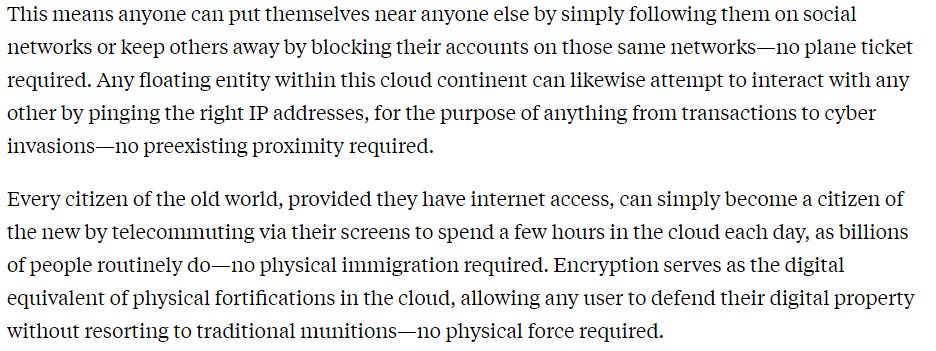
The pandemic time has shown the world that remote work is possible. A workforce with no need for proximity is a reality. Even a necessity.
This feeds into the rise of decentralized networks and economies that are global, remotely linked and managed, and most importantly - decentralized.
The future of markets and the economy may have already changed or been set up afresh.
However, the next step is the full Web3-based decentralization of online marketplaces and sharing economy services, which is already well underway via peer-to-peer trading of cryptocurrencies (so-called decentralized exchanges). These new forms of transnational regulation, where app users have a stake—and a say—in how their platforms are run, will expand beyond cryptocurrencies to the peer-to-peer exchange of other goods and services over time. Why? Because the U.S. Food and Drug Administration was set up to regulate Merck and Pfizer, not 1 million biohackers; the Federal Aviation Administration was built for Boeing and Airbus, not 1 million drone hobbyists; and the U.S. Securities and Exchange Commission was created to go after Goldman Sachs and Morgan Stanley, not 1 million Web3 developers. The people running these institutions typically have career tenure; they were not democratically elected and are not easily fired. They are thus not obviously accountable to the public they claim to serve. (Source)
And, the new means of property rights? Encryption.
Encryption ensures your rights over your digital assets.
Decentralization also pushes us against another reality. Something that Dr. Jaishankar has often talked about - a multi-polar world.
Multipolarity at the core of our contemporary relationship - both as a reality & as an aspiration. Has enabled us to smoothly maintain our ties in comparison to others.
Operating principle in a multipolar world: legitimate pursuit of flexibility without seeking exclusivity.— Dr. S. Jaishankar (@DrSJaishankar) July 8, 2021
The main global superpowers hardly define the new world.
About 75 percent of the world’s population, more than 60 percent of global GDP, and around 50 percent of all billionaires are neither Chinese nor American. Those two superpowers may well fight, but it’s not obvious if the rest of the world will want to align with either party. Indeed, with the rise of decentralized protocols, we anticipate that many states in the middle may decide to use Bitcoin, Ethereum, and other chains for China- and U.S.-resistant communication and financial transaction channels. (Source)
Benedict Macon-Cooney argues in an interesting article titled "From National States to the Network States" that tech advances are rendering geography-based governments obsolete. (Source)
As per Balaji Srinivasan, the time has come to prepare for online nations that are decentralized with anonymity backed by ultimate encryption-based security. He says that many of the conditions necessary for the Tiebot Model of organizing society are now falling into place as cryptoeconomic and sovereign collective tools are maturing.
And, it is in this spirit, that Balaji and his friends have created the first Network State - an Open Source project - called 1729. (Source: 1729)
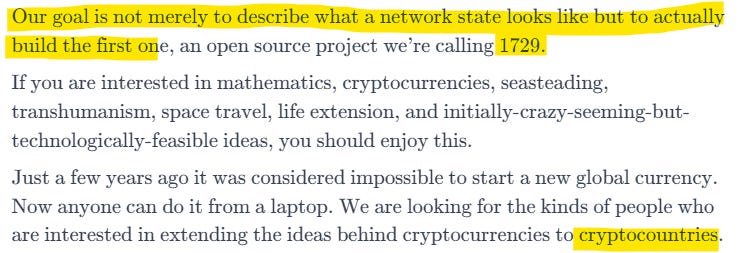
The idea is to create an anonymous cover for the "inhabitants" of these network states. The Secret States.
So: what if we go from secret societies to secret states?
Network states where membership is intentionally opaque, where mass pseudonymity isn't just individual protection but collective defense. Because there's no limit to the scale of end-to-end encryption…— Balaji Srinivasan (@balajis) September 22, 2021
Why is the concept of Network State so important? Specifically when the power of some corporations like Twitter, Facebook, and Instagram show open bias and prejudice.
Because the choice really is between Decentralization and Digital Totalitarianism.
The choice is between decentralization and digital totalitarianism.
When they can hit a key to zero you out, it doesn’t matter whether it’s done by the Chinese state or a group of American corporations. https://t.co/ZnW59KxGhv— Balaji Srinivasan (@balajis) March 21, 2022
Now let us go back to the original idea that we started with.
Elon Musk buying the entire Twitter platform. To promote and safeguard "Free Speech."
It may seem like a good idea because it moves us away from the original leadership of Twitter which has been full of prejudice, bigotry, and totalitarianism.
But it may move the world from one totalitarianism to another. One set of controlling hands that allow no dissent. To another.
Earlier this year, one of the Autopilot employees at Tesla - John Bernal, shared his personal story. He had provided a review on his Youtube channel of the Full Self Driving Beta system from Tesla.
He was fired.
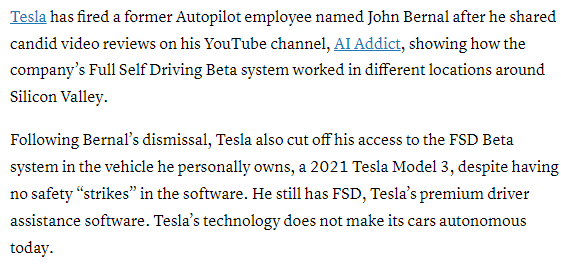
So when Elon Musk spoke of Free Speech and Democracy, Bernal (AIAddict) called him out.
Seems @elonmusk is a free speech absolutist… unless it involves safety concerns IMO 🤷🏼♂️ https://t.co/QWV5JFukOc
— Aiaddict (@Aiaddict1) March 25, 2022
Makes you wonder, doesn't it?
Freedom of Speech can only be achieved by the decentralization of virtual states and citizenship that are formed on the power of anonymity and distributed architecture.
Drishtikone Merchandize
We want to celebrate what we do. So, we have created our mugs with our logo and what we do. Sharing a couple of pictures with you here.
If anyone in the US desires to get this mug, you can get it from the same place we created it - our Zazzle account. The link is below.

We are working on some other stuff as well. Will keep you posted.
Video Corner: The New World Order
On March 28th, the Russian Central Bank restarted buying gold from banks at 5000 Rubles ($52) per gram of Gold.
The Russian central bank will restart buying gold from banks and will pay a fixed price of 5,000 roubles ($52) per gramme between March 28 and June 30, the bank said on Friday. The central bank, which suspended gold purchases from banks in mid-March to meet increased demand for the precious metal from households, said the resumption of buying would help ensure sustainable supply and the uninterrupted functioning of gold producers. (Source)
The Bank of Russia has essentially linked the Ruble to Gold and since Gold trades in US DOllars, a floor price for the Ruble in terms of US Dollars has been set up.
The Ruble is now linked both to Oil and Gas.
Why is this a seismic shift in geo-politics? Because.
If you’re confused why the ruble being backed by gold is a big deal for the dollar pic.twitter.com/ivJ0AjKUbg
— jon hudson 🪩✨🏴 (@jon_speaks_) March 31, 2022
The world has changed. What the US could do to Libya or others who threatened to undermine Petrodollars cannot be done to Russia. And in that realization lies the seed of a New World Order!
If you like our content and value the work that we are doing, please do consider contributing to our expenses. CHOOSE THE USD EQUIVALENT AMOUNT you are comfortable with.
If you like this post - please share it with someone who will appreciate the information shared in this edition.
Today’s ONLINE PAPER: Check out today’s “The Drishtikone Daily” edition. - THE DRISHTIKONE DAILY




